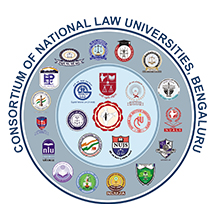What is Taxation Law
Taxation Law, also known as Revenue Law is a popular specialisation in legal discipline and is a set of regulations that governs the tax that the citizens are obliged to pay to the government. The tax imposed by the central and state governments is submitted by the taxpayers from their income or property. Due to the routine nature of the specialisation, there is a huge growth in this sector, and aspirations are also increasing.
The courses are offered at both undergraduate and postgraduate levels, some of the degrees offered are Diploma, PGD, and LLM. More than 100 colleges in India offer Taxation law courses. Taxation Law is a sub-discipline of Law and provides students with various career options and high paid jobs.
It is a common myth that to pursue Taxation Law; one must have quantitative and mathematical skills but more than that it only requires an aspirant to have a reasonable level of intellectual capacity, knowledge of tax reforms, and current trends in the field. In addition to that, it is also expected that the aspirant must have expertise in detailing and a problem-solving attitude.
Taxation Law- Important Dates and Events
- 7th December 2024- CLAT result out
- 9th December 2024-CLAT 2025 Counselling Registrations Started
Taxation Law Course Details: Highlights
| Particulars | Values |
|---|---|
Branch Name | Taxation Laws |
Taxation Law Degrees | UG: Diploma, B.Com, B.Com(Hons) |
Taxation Law Course Duration | UG: 5 years PG: 2 years |
Taxation Law Eligibility Criteria | UG: 10+2 in commerce PG: Bachelor’s Degree |
Taxation Law Admission Process | Entrance Exam / Direct Admission |
Taxation Law Entrance Examinations | UG: ILSAT PG: LSAT, CLAT PG |
Taxation Law Top Colleges | ILS Pune, JNVU Jodhpur, MSU Baroda, Amity University, Noida, TNDALU Chennai, UNIPUNE. |
Taxation Law Course Fees | Rs. 2,500 - Rs. 3.5 Lakhs |
Taxation Law Career Options | Tax Attorney, Tax Collector, Tax Associate, Chief Financial Officer, Tax Analyst |
Taxation Law Average Salary | Rs 4.9 LPA ( for Tax Analyst) |
Taxation Law Top Recruiters | Amarchand and Mangaldas, DSK Legal, Anand and Anand, Luthra and Luthra Law Offices, Platinum Partners. |
What is a Taxation Law Course?
Taxation Law, popularly known as Tax Law is a well-received specialisation of law. It involves the legal procedure and processes involved in calculating the taxes that are paid to the government. Students will study different types of taxes such as Direct Tax, Indirect Tax, and Personal Tax. Taxation Law courses are offered at various levels such as undergraduate and postgraduate levels.
Taxation Law Courses- Taxation Law courses are offered at various levels such as undergraduate and postgraduate levels. Some of the popular courses offered in Taxation Law are mentioned below.
- LLB in Tax or Taxation Law (Undergraduate)
- LLM in Taxation Law (Postgraduate)
Course Curriculum- In the course curriculum of Taxation Law, students will study subjects such as Goals of Taxation Systems, Tax Planning, avoidance and evasion, and fundamentals of GST evasion.
Job Profiles- After graduation, students can apply for various job profiles such as Tax Attorney, Tax Collector, Chief Financial Officer, and Tax Analyst.
Specialisation or Similar Ones
Taxation Law is a broad discipline that includes many similar or related specialisations. It covers a range of topics such as Introduction to the Tax System in India, the Income Tax Act of 1961, Managerial Accounting, and Goods and Services Tax. Listed below are some of the specialisations of Taxation Law:
- Tax Practice
- Income Tax and Sales Tax
- Taxation Laws and Practice
- Tax Consultancy
In the table below, we have mentioned the major degree programmes in the field of Taxation Law and similar courses.
Diploma in Financial Accounting and Taxation | Advanced Diploma in Tax Consultancy |
LLM Taxation | PGD in Taxation Laws and Practice |
PGD Taxation and Insurance Law |
Top Private Taxation Laws Colleges in India
Taxation Law courses are offered by around 85 private colleges in India. The admissions are often based on previous academic achievements and the results of the entrance examinations. In the table below we have listed the top private colleges offering Taxation Law courses in India.
| Colleges | Fees |
|---|---|
Rs 11,045 | |
\Rs 15,070 | |
Rs 1.95 Lakhs | |
Rs 6,600 | |
Rs 1.30 Lakhs | |
Rs 1.10 Lakhs | |
Rs 3.50 Lakhs | |
Rs. 20,000 | |
Rs. 29,900 | |
Rs. 2.89 Lakhs |
Note: The fee structure provided above can be for any particular Taxation Law course (Diploma/ Degree/PGD).
Top Government Taxation Law Colleges in India
There are many government law colleges in India offering Taxation Law courses. Studying Taxation Law at a government institute is generally much cheaper than studying the same at a private institute. In the table below we have mentioned the top government colleges offering Taxation Law courses.
| Colleges | Fees |
|---|---|
Rs 64,000 | |
- | |
Rs 12,730 | |
Rs 2,500 | |
Rs 12,000 | |
Rs 11,068 | |
Rs. 45,000 | |
- | |
- | |
- |
Eligibility Criteria (UG & PG) of Taxation Law
Eligibility Criteria for UG Courses
The eligibility criteria for the undergraduate degrees in Taxation can be different for each college. Students can check the website of the college to know the course details. In this section, we have listed the eligibility requirements for the UG degrees in Taxation.
| Eligibility Parameters | Details |
|---|---|
| Educational Qualification | 10+2 from a recognised institute in India |
| Minimum aggregate score | 50-60 per cent (5-10 per cent relaxation for reserved category applicants) |
Top Entrance Exams for UG Courses
Entrance examinations can be conducted at national, state, or university levels. Some of the popular entrance examinations are mentioned below along with their details.
| Exam Name | Exam Level | Conducting Body | Exam Application Form |
|---|---|---|---|
University | ICFAI Foundation for Higher Education, Hyderabad |
Eligibility Criteria for PG Courses
The Taxation Law courses are also offered at the postgraduate level. Students need to have completed their Bachelor’s degree in the field of law or related discipline to be eligible for admission. Candidates can check the eligibility criteria by visiting the official website of the institute.
| Eligibility Parameters | Details |
|---|---|
| Educational Qualification | LLB from a recognised board in India |
| Entrance exam | CLAT PG is a popular entrance examination |
| Minimum aggregate score | 50-60 per cent (5-10 per cent relaxation for candidates belonging to the reserved categories) |
Top Entrance Exams for PG Courses
Similar to the UG degrees, students are also required to clear the entrance examination for admission to the postgraduate level degrees in Taxation Law. In the following table, we have provided details of the popular entrance examinations required for PG-level degrees in Taxation Law.
| Exam Name | Exam Level | Conducting Body | Exam Schedule |
|---|---|---|---|
National | Consortium of NLUs | ||
National | Law School Admission Council | - |
College Predictors VIEW ALL
Scope of Taxation Law in India and Abroad
With the growing opportunities in Tax law, there are various options available for candidates who are skilful and have good knowledge about their subject. Law students have opportunities such as internships where they can apply their theoretical knowledge and fresh graduates come out with some considerable experience. It becomes easy for the candidates who have acquired some practical experience in this field to land a job they dream of.
Government and private firms are always looking for graduates with highly competitive abilities and expertise. The scope also extends to International taxation where students can learn the reforms and trends of the tax system that functions in foreign countries. This helps them to acquire skills and knowledge useful in applying for international firms and organisations.
Course Fees Taxation Law
| Minimum Fees | Maximum Fees | |||
|---|---|---|---|---|
| Private | Government | Private | Government | |
| UG | ||||
| PG | ||||
| DIPLOMA | ||||
Course Subjects
In this section, we will discuss the syllabus of Taxation Law courses at the undergraduate and postgraduate levels. The syllabus of the course will vary depending on the institute and the level of education but the overall structure of the course is almost the same for every institute.
Taxation Law Syllabus for UG Course
To know the syllabus of the course, candidates are required to visit the official website of the institute or refer to the programme brochure. In the table below we have mentioned the topics covered in the BCom Taxation course taught at Kakatiya University, Warangal.
Semester 1 | Semester 2 |
English (First Language) | English (First Language) |
Environmental Science/ b)Basic Computer Skills | Basic Computer Skills/ b)Environmental Science |
Financial Accounting-I | Financial Accounting-II |
Business Organization and Management | Business Laws |
Income Tax - I | Income Tax - II |
Semester 3 | Semester 4 |
English (First Language) | English (First Language) |
Communication Skills Professional Skills | Leadership & Management Skills Universal Human Values |
a) Principles of Insurance/ b) Foundation of Digital Marketing & Web Design | a) Practice of Life and General Insurance / b) Social Media Marketing Search Engine Optimization & Online Advertising |
Advanced Accounting | Excel Foundation |
Business Statistics-I | Business Statistics-II |
Assessment of Other Entities | Customs Procedure & Practice |
Semester 5 | Semester 6 |
English (First Language) | English (First Language) |
Business Economics | Research Methodology and Project Report |
a) Cost Accounting/ b) Financial Planning & Performance/ c) International Financial Reporting-I | a) Cost Control and Management Accounting/ b) Financial control/ c)International Financial Reporting-II |
a)Computerised Accounting/ b)Financial Decision Making-I/ c) International Tax & Regulation | a)Theory and Practice of GST/ b)Financial Decision Making-II / c) International Auditing |
a)Tax Planning & Management/ b)Advanced Corporate Accounting/ c) Financial Management | a)International Tax & Regulation/ b) Corporate Governance/ c) Investment Management |
Taxation Law Syllabus for PG Courses
The syllabus of PG Courses of Taxation Law can differ from institute to institute but the core curriculum remains almost the same. The duration of the course is two years divided into four semesters. In the table below we have mentioned the syllabus of the TNDALU Chennai for their LLM Taxation Law course.
Semester 1 | |
Judicial Process | Legal Education and Research Methodology |
Principles of Taxation | Law of Income Tax |
Constitution and Law of Taxes | - |
Semester- 2 | |
Constitutional Law: The New Challenges | Law and Social Transformation in India |
Law of Goods and Services Tax | Corporate Governance and Taxation |
Applied Research Methodology | - |
Semester- 3 | |
Law of International Taxation | Law of Taxation and IPR |
Law of Transfer Pricing | Law Relating to Tax Planning and Economic Development |
Semester- 4 | |
Comparative Tax Law | Law relating to International Trade and Taxation |
Skill Enhancement Course | Dissertation |
Careers in Taxation Law
In the last few years, there has been a growth in the number of candidates appearing for the specialisation and postgraduate programmes in this sector. As a result of that, various government and private recruiters are hiring tax law graduates and the number of job profiles has largely increased giving out handsome salaries to the candidates.
| Job Profile | Job Description |
|---|---|
Tax Attorney | Tax attorneys are professionals who work as advisors to companies and individuals regarding tax law areas and financial management. They keep an eye on the legal aspects of the tax area and interact with clients regarding the changes to be made in their businesses and personal finances according to the legislation. |
Tax Associate | Tax Associates are professionals who are responsible for preparing tax returns of businesses and properties and any other area depending on the firm requirements. They verify bills in the tax area, track assessments, and income tax compliance. |
Chief Financial Officers are professionals who manage the financial section of a company. They also keep track of cash flows and help in planning finances. | |
Tax Analysts are found in various industries such as transportation, manufacturing, banking, IT, and telecommunications. They ensure that the company or organisation pays its taxes after analysing its finances and following the central and state tax obligations and laws. | |
Financial Advisors are professionals who advise and consult individuals and businesses about their financial strengths and weaknesses. They are responsible for companies and individuals to reach their financial goals by providing them with easy solutions and strategies to acquire more wealth by taking advantage of credits and eliminating extra costs. | |
Lecturers are instructors who teach various levels of students at higher education institutions like colleges or universities. As subject-area experts, they prepare and teach content through classes and seminars. |
Upcoming trends
This is not an unknown fact anymore that in almost every professional field there has been a gradual shift in the trends of work due to the introduction of new technologies. That being said, taxation law is also not untouched by that. The following are the trends that it looks forward to:-
- Automation
- Artificial Intelligence
- Machine Learning
- Accounting systems for digital handling of invoices
- Digital Economy Taxation
- Global Minimum Tax
- Tax Transparency and Reporting
- Data Analytics
- International Cooperation and Tax Reform
Job Profiles and Top Recruiters
Jobs in Taxation Law are mostly based on tax litigation and tax advisory for consulting firms, in the government sector and for-profit or non-profit organisations. Some of the top recruiters hiring Taxation Law graduates are listed below.
- Amarchand and Managaldas
- DSK Legal
- Anand and Anand
- Luthra and Luthra Law Offices
- Phoenix Legal
- AZB and Partners
- Desia and Diwanji
- Khaitan and Co
Average Salary
The average salary after a Taxation Law course depends on the location, experience, job location, and job profile. In the table below we have mentioned the average salary of some of the top profiles.
| Job Profile | Average Salary |
|---|---|
Tax Attorney | 14.5 LPA |
Tax Associate | Rs. 5.91 LPA |
Chief Financial Officer | Rs. 20.5 LPA |
Tax Analyst | Rs. 4.6 LPA |
Source: Ambition box, Glassdoor
Note: These salary figures may vary depending on various factors, such as designation, experience, skills, and job location.
Required Skillset for Taxation Law
Candidates should have relevant skills that will help them in their careers or jobs. Many companies are looking for candidates who are well-qualified and can become an asset to the company. In the table below, we have listed the necessary skills for the candidate wishing to apply for Taxation Law.
- Excellent numerical and accounting skills
- Communication skills
- Analytical and critical thinking skills
- Good listening skills
- Eagerness to learn
- Good Knowledge of recent tax reforms and experience in drafting and briefing
Course Curriculum for Taxation Law
The course curriculum of Taxation Law prepares the candidates with career-oriented skills. Due to the high demand for tax lawyers, and advisors, and due to the evergreen area of practice, the job security in this field is higher than in other fields. There are also different specialisations that the candidates can choose from. The core subjects taught in taxation law are as follows:
- Law of Taxation
- Law of Evidence
- Professional Ethics and Professional Accounting
- Legal Education and Research Methodology
- Law of International Taxation
- Law of Taxation and IPR
Popular Taxation Law Entrance Exams in India
Frequently Asked Questions (FAQs)
Question: Is there a diploma course in taxation law? What are the subjects of the course?
Answer :
In taxation law, a Diploma course is for a term of one year. It includes Accounting and commerce specialisation which focuses on imparting both theoretical and practical knowledge in auditing, financial accounting, and direct and indirect taxes.
Question: What are the key roles and responsibilities of a tax consultant?
Answer :
Tax Consultants' key roles and responsibilities include making good financial decisions about tax issues. They work with clients to help them manage their tax liability by collecting information on their financial strategies and situations.
Question: What are some of the highest-paying careers or job profiles in the field of taxation law?
Answer :
Various job profiles in the field of taxation law provide job security and a handsome salary. Some of them include Tax Attorney, Income Tax Consultants, Tax Accountants, Property Tax Consultants, Tax recruiters, Tax Advisors, Business tax Consultants, and Chief Financial Officers.
Question: What kind of firms hire a Tax Associate?
Answer :
A Tax Associate has more than one option when it comes to firms and organisations. Accounting firms, government sectors, in-house attorneys, and tax advisory firms are some of the examples that hire a Tax Associate.
Question: What are the top colleges offering Taxation Law courses?
Answer :
There are many private and government colleges offering various courses such as Modern Law College, Amity Law School, Noida, ICFAI Law School, and IIMT University.
Question: What are the career options in the field of Taxation Law?
Answer :
After completing an undergraduate or postgraduate course in the field of Taxation Law, some of the career options are Financial Advisor, Tax Collector, Tax Manager, Tax Accountant, and Tax Advisor.
Question: What are the top entrance exams for Taxation Law courses at UG and PG levels?
Answer :
The top entrance exams for Taxation Law courses include ILSAT, LSAT, and CLAT PG.
Questions related to Taxation Law
I have completed my MBA in finance but now i want to do taxation law so what should i now
For Postgraduate Taxation Law Course
Fulfillment of LLB or a comparable degree from a perceived college in India is an unquestionable necessity for a contender to be qualified for a postgraduate program.
The competitor who has finished a 5-year coordinated course in regulation is likewise qualified for PG Diploma course or LLM in tax collection regulation.
i am b.com graduate . and i want to do llb in taxation law it is poosible now if yes so what is procedure for doing it
Greetings,
It is possible to do LLB after graduation. To do so you have to give LLB entrance exam for 3 year LLB course. The premier college for 3 year law is Campus Law Center of Delhi University. Alongside you can do diploma in taxation laws as well. However, you will be taught commercial and taxation laws in your curriculum.
I am 34 year old. I have done M. Come; Diploma in Taxation law; Govt. Diploma in co-operative Accountancy. Can I get Govt. job
Hi Sonali,
Different government jobs have different age limits ranging from 18 to 40 years for general category, however reserved castes (SC, ST) and ex-servicemen can avail additional 5 years age relaxation while OBC candidates can avail 3 years.
Now, coming back to your question... Yes, you can get a few government jobs after 34 years of age.
Some of the opportunities you may try out are:
- Rajasthan Subordinate and Ministerial Services Selection Board (RSMSSB) Rajasthan Lab Technician/Radiographer
- UKSSSC JE Recruitment
- IBPS Associate Professor Recruitment
- UPRVUNL TG2 Recruitment
- RUHS Medical Officer
Hope this was helpful.
Diploma in taxation law course
Hello aspirant,
Diploma in Taxation Law is a professional course with finance and accounting topics. It is a 1-year diploma level course. Diploma in Taxation is a one-year program in accounting and commerce which includes both the theoretical and practical knowledge of direct and indirect taxes financial accounting and auditing. And there are institutes in India that provide taxation law course in India. For more information, please go through the link given below-
https://law.careers360.com/colleges/list-of-diploma-in-taxation-law-colleges-in-india
Hope, this answer helps you.
Hope
after completion of BE-CIVIL ,I am taking admission in LLB .So particularly which course of LLB should i prefer. (for eg. should i prefer BA LLB /Diploma in labour law and welfare /LLB/diploma in taxation law etc.)
Hello Yogesh!
You have already completed BE Civil Engineering, so go for LLB directly. LLB is a three year course and is more preferable other than the diploma courses, as you would grab more internship opportunities in law firms and get self employed easily. You do not need to go for BA LLB as it is an integrated course and is of five year duration.
I would suggest you to go for LLB in Construction Law. Because it would be the most suitable course according to your civil engineering background. I suggested this specialization because most of the construction companies and real estate firms have civil cases nowadays. They have many disputed lands issues and many other issues also.
Get a list of LLB colleges in India:-
https://law.careers360.com/colleges/list-of-law-colleges-in-india
Hope this helps!








.jpg)




 Answer later
Answer later











